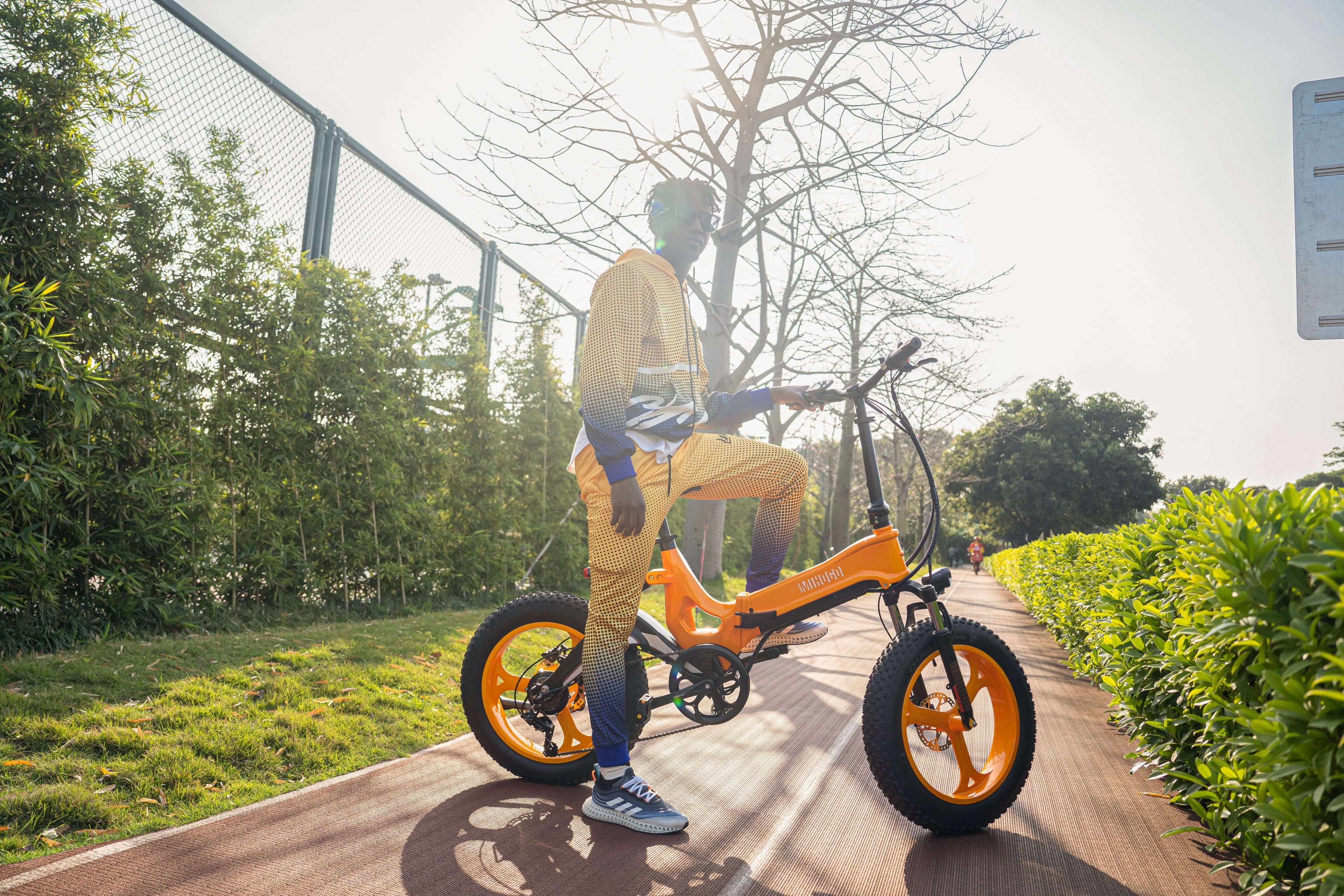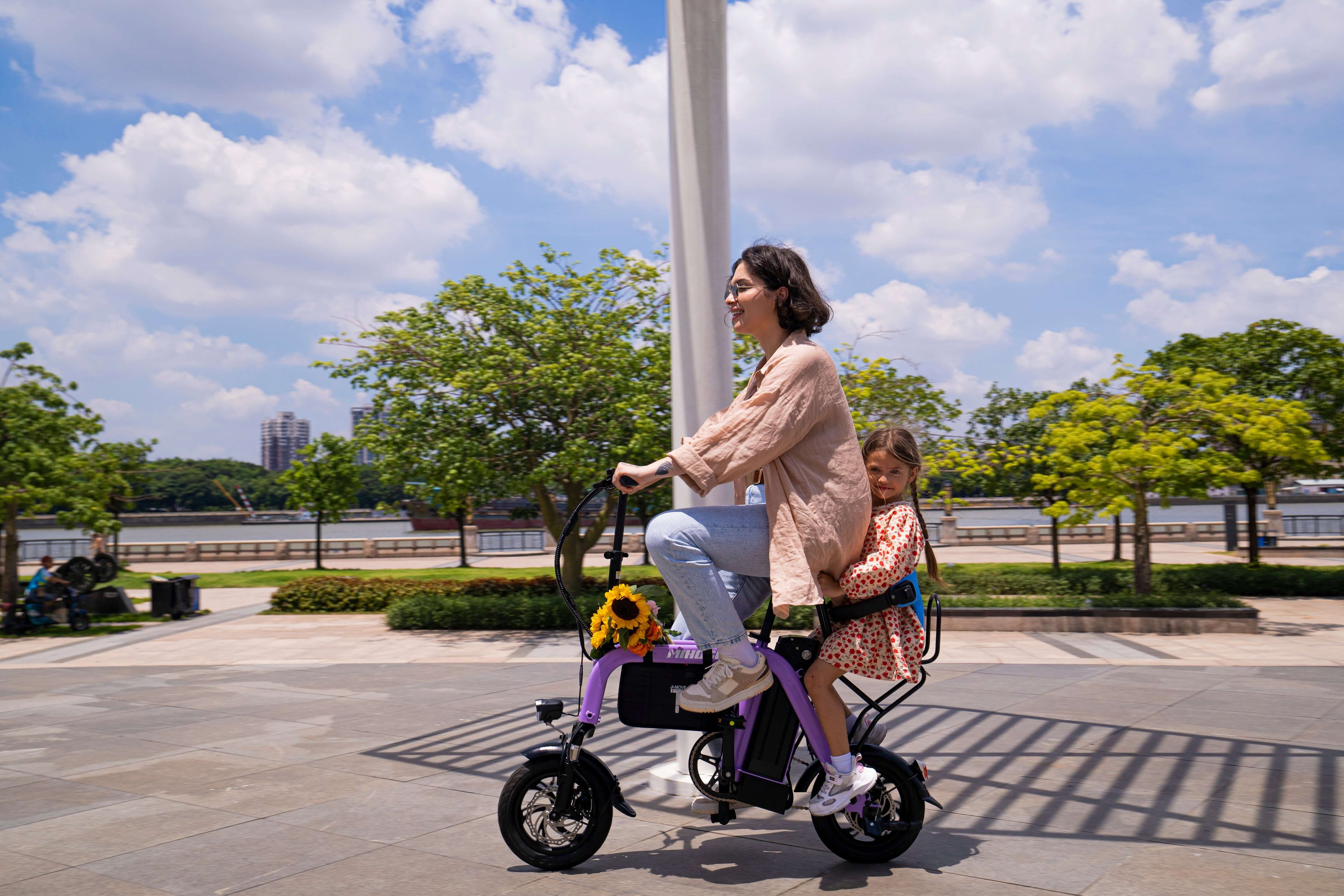Understanding Legal E-Bike Speed Limits in 2025
Before diving into performance optimization, it's crucial to understand the legal framework. Under California's new SB 1271 law effective January 2025, e-bikes are classified into three distinct categories with specific power and speed restrictions:
- Class 1: Pedal-assist only, maximum 20 mph
- Class 2: Throttle-assisted, maximum 20 mph
- Class 3: Pedal-assist only, maximum 28 mph
The 2025 regulations now enforce a strict 750-watt power limit, with any modifications exceeding these thresholds potentially reclassifying your e-bike as a moped or motorcycle.
Legal Performance Optimization Techniques
Battery Range Optimization
Maximizing your e-bike's battery efficiency can significantly improve performance without violating speed regulations. Here are proven strategies:
Optimal Charging Practices:
- Maintain battery charge between 20-80% for optimal longevity and performance
- Charge at room temperature (50°F-86°F) for maximum efficiency
- Use manufacturer-approved chargers only
Riding Technique Enhancement:
- Maintain a consistent cadence of 70-90 RPM for optimal motor efficiency
- Use pedal-assist modes strategically to conserve battery
- Choose flatter routes when possible to maximize range
Tire Pressure and Maintenance
Proper tire maintenance significantly impacts both speed and battery efficiency. For optimal performance:
- Check tire pressure weekly (typically 40-70 PSI)
- Ensure tires are properly inflated to reduce rolling resistance
- Replace worn tires promptly for better traction and efficiency
Weight Reduction Strategies
Reducing overall system weight, including unnecessary cargo, can improve both speed and range. Consider:
- Removing non-essential accessories
- Using lightweight gear and clothing
- Optimizing cargo distribution
Mihogo E-Bike Models: Terrain-Specific Performance
Based on Mihogo's current lineup, here's how each model performs across different terrains:
Mihogo Air750 Max - Premium Carbon Performance
Specifications: 750W motor, 121-mile range, 25 MPH top speed, Carbon fiber frame
Best for:
- Long-distance road cycling and commuting
- Smooth pavement and bike paths
- Riders prioritizing lightweight performance and extended range
- Urban environments with consistent surfaces
MIHOGO ONE Utility E-Bike - Versatile Workhorse
Specifications: 750W motor, 167-mile range, 25 MPH top speed, Utility design
Best for:
- Cargo hauling and delivery applications
- Mixed urban and suburban terrain
- Daily commuting with storage needs
- Riders requiring maximum range and utility
MIHOGO RX 2.4 - Compact Commuter
Specifications: 500W motor, 40-mile range, 23 MPH top speed, Folding design
Best for:
- Urban commuting and last-mile transportation
- Apartment dwellers needing compact storage
- Public transit integration
- Short to medium-distance rides on paved surfaces
Mihogo Mini - Compact City Cruiser
Specifications: 350W motor, 62-mile range, 21.9 MPH top speed, Mini frame
Best for:
- City cruising and neighborhood rides
- Riders with height constraints (5'1" to 6'4")
- Casual recreational riding
- Budget-conscious urban mobility
Advanced Performance Tips
Motor Efficiency Optimization
For mid-drive motors like those in Mihogo's lineup, maintaining proper gear ratios enhances efficiency:
- Shift to easier gears before stops and starts
- Use appropriate gear selection for terrain
- Maintain consistent pedaling pressure
Seasonal Maintenance Strategies
Regular maintenance ensures peak performance year-round:
- Clean drivetrain components monthly
- Lubricate chain after every 100 miles
- Store batteries at moderate temperatures
- Perform seasonal tune-ups
Battery Technology Advancements
Understanding modern battery technology helps optimize performance:
- Lithium-ion batteries perform best at moderate temperatures
- Partial charging cycles extend battery lifespan
- Firmware updates can improve battery management system efficiency
Safety Considerations for High-Performance Riding
When pushing your e-bike's legal performance limits:
- Always wear appropriate safety gear
- Ensure braking systems are adequate for higher speeds
- Maintain awareness of local traffic laws
- Consider upgrading to hydraulic disc brakes for improved stopping power
E-Bike Technology Trends 2025
The e-bike industry is rapidly evolving with trends toward lighter frames, more efficient motors, and stricter safety regulations. Staying informed about these developments helps riders make educated decisions about upgrades and modifications.
Conclusion
Maximizing your e-bike's performance legally requires a combination of proper maintenance, optimal riding techniques, and understanding your specific model's capabilities. Whether you're riding a Mihogo Air750 Max for long-distance performance or a Mihogo Mini for urban mobility, these strategies will help you get the most from your electric bike while staying within legal boundaries.
Remember, any modifications that push your e-bike beyond its classified speed or power limits may require registration as a motorcycle or moped. Always prioritize safety and legal compliance while enjoying the enhanced mobility that modern e-bikes provide.
External References
For additional information on e-bike regulations and safety:
- Federal E-Bike Classification Guidelines
- Battery Safety and Maintenance Standards
- Electric Vehicle Transportation News








